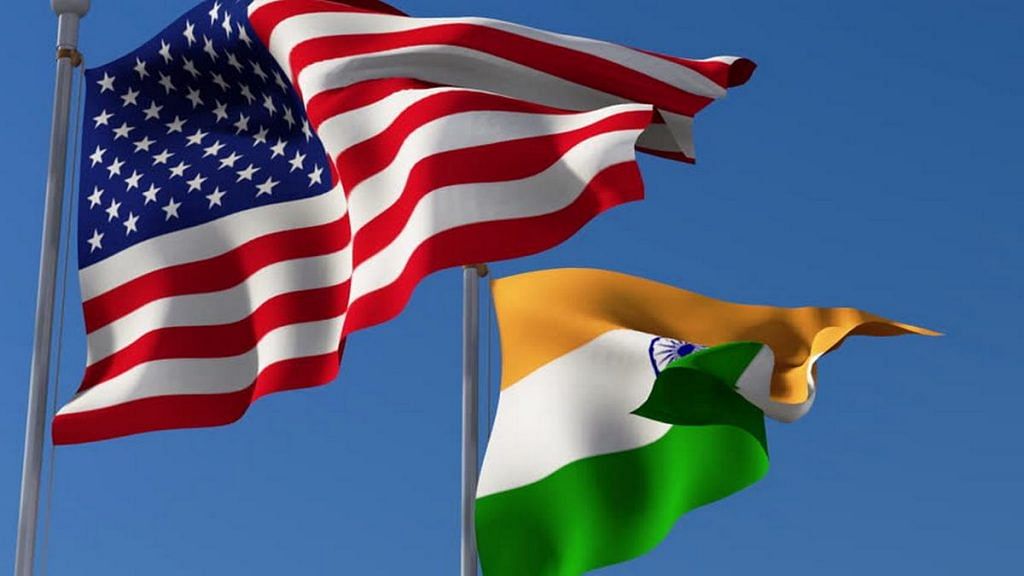New Delhi: Amid soaring tensions with Beijing, New Delhi is now keen on “leveraging” the stance being taken by Washington as it increasingly puts the limelight on India’s neighbourhood while beginning to stand up against China, ThePrint has learnt.
In a major foreign policy shift, the Donald Trump administration is now looking at countries like Bangladesh, Sri Lanka and Maldives among others, not just for the purpose of business, but as key strategic partners under the Indo-Pacific construct, which is largely aimed at containing China.
According to Indian diplomatic sources, the US is now going to put greater focus on India’s neighbourhood in order to lessen China’s influence there, which will “enable India to leverage” its position also under its ‘Neighbourhood First’ policy.
Also read: Hybrid war, Quad or sitting it out? The 5 options for India against China
Pompeo’s India, Sri Lanka visit
In an effort to lessen the growing Chinese influence and expansion of Indo-Pacific, US Secretary of State Mike Pompeo will be undertaking a visit to Sri Lanka on 27 October, where he is expected to meet the Rajapaksa brothers — President Gotabaya Rajapaksa and Prime Minister Mahinda Rajapaksa — and offer a grant of $480 million.
Before his visit to the island country, Pompeo will be in India to attend the 2+2 ministerial dialogue, along with US Defence Secretary Mark Esper.
The visit by the US administration to Sri Lanka comes close on the heels of a high-powered trip by the Chinese, led by Director of the Central Foreign Affairs Commission Office and former ambassador to the United States, Yang Jiechi. During the visit, President Rajapaksa vowed to deepening friendship with China.
Pompeo is also expected to visit Maldives, even as Washington and Male have signed the ‘Framework for U.S. Department of Defense-Maldives Ministry of Defense and Security Relationship’ on 10 September, which was welcomed by India.
Foreign Secretary Harsh Vardhan Shringla is expected to visit Maldives on 10 November. This comes after his visit to Bangladesh and Myanmar in an effort to renew India’s push to for the ‘Neighbourhood First’ policy as China continues to make aggressive inroads there.
“The US is, no doubt, putting more focus on India’s neighbourhood now and it is a positive development that is unfolding as a consciously designed approach under the Quad (Quadrilateral Security Dialogue) and larger Indo-Pacific. This will shore up confidence and also strengthen India’s position as the US is aware that there is power asymmetry between India and China,” said Rajiv Bhatia, Distinguished Fellow at Gateway House.
Also read: Trump or Biden, India-US strategic ties won’t be friction-free
Focus on India’s neighbourhood post US elections
Earlier this week, US Deputy Secretary of State Stephen E. Biegun, during his visit to India, stated that Washington and New Delhi have a “fundamental alignment” even as China remains “elephant in the room”.
After concluding his India visit, Biegun headed straight to Dhaka. During his meeting with the Foreign Minister of Bangladesh AK Abdul Momen, Beigun said that the US is “committed to growing our partnership in this regard to advance a free and open Indo-Pacific. Bangladesh will be a centrepiece of our work in the region.”
Sources in India’s diplomatic community are also wary of the fact whether such a focus on India’s neighbourhood will continue to be there if the US administration changes after the Presidential elections.
“There is greater congruence between India and the US on strategic issues, irrespective of which administration comes in. The Democrats, of late, have also been much harsh and critical of China as the Republicans and there’s a larger recognition of the fact that China has to be countered,” said Rajeshwari Pillai Rajagopalan, distinguished fellow and head (nuclear & space policy initiative), Observer Research Foundation.
However, according to her, whether the alignment of Indian and American industries will take place or not in the neighbourhood remains doubtful if a Biden administration comes to power.
During his address to Indian Americans in September, Democratic Presidential candidate Joe Biden had said, “The US and India share a strong interest in a rules-based Indo-Pacific region, where no country including China threatens its neighbours with impunity.”
Also read: Maldives to Moscow — India prepares for brave new Biden world after Modi-Trump bonhomie
